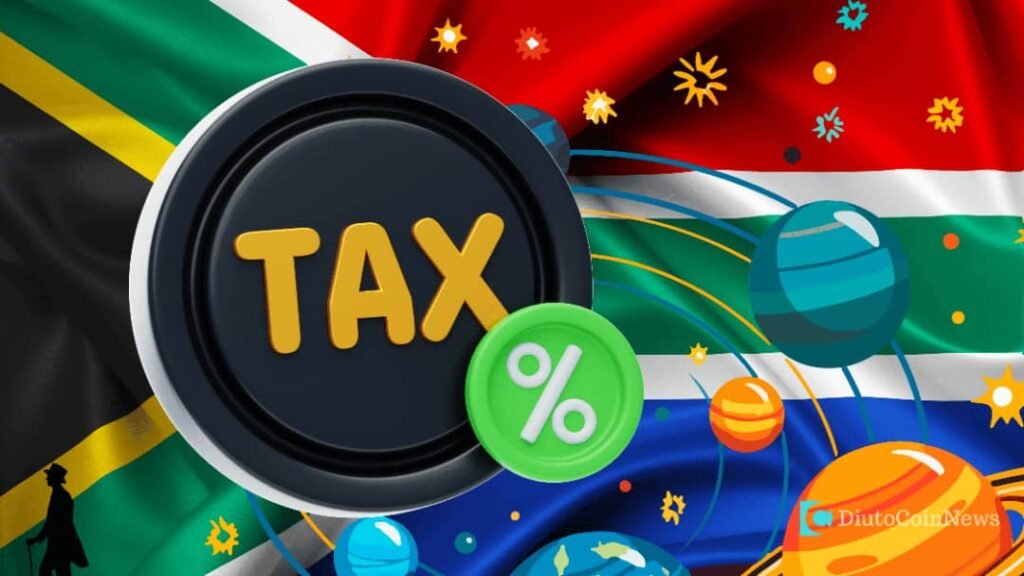Despite what industry stakeholders describe as government unstable regulatory policies on fintech, investment in the fintech sector continues to attract new investors.
In this article culled from Financial Post, Neil Munshi went to the streets of Lagos rated as the Fintech Hub of Nigeria to feel the pulse and heart beat of what drives the industry.
Down an alley off Kukawa Street in Lagos Island, across from a building abandoned mid-construction, Paulo Communications does a brisk trade. On an average day, dozens of customers walk past fried food and fresh fruit stands to visit his street-side shop and top up their mobile phones or pay their monthly satellite TV bills.
The shop’s biggest business is mobile transactions. It completes dozens of withdrawals, deposits and payments for customers every day, using half a dozen different systems offered by telecommunications giants, big banks and the fintech companies that have made Lagos — Nigeria’s commercial capital — Africa’s hottest start-up scene, accounting for roughly a fifth of the continent’s total venture capital funding in 2020.
“There are at least 20 bank branches near here, but still they come to me,” says proprietor Paulo Umunnabuike, showing off an array of point-of-sale machines from each of the companies that he uses. “At the bank, you wait in line — here, it is much faster.”
After years in which Nairobi, the Kenyan capital, led Africa’s tech revolution, momentum has shifted to west Africa and to Lagos, which has attracted more than $1 billion in venture capital in the past two years from Silicon Valley, China and elsewhere. In 2020, as the coronavirus pandemic hit tech fundraising, Nigerian companies raised $307 million in venture funding, a fifth of Africa’s total, according to Partech, a venture fund, in its annual report on technology in Africa. Nearly 40 per cent went to the fintech sector.
The swell in fintech in Nigeria has come even as critics argue the government has taken a heavy-handed, sometimes antagonistic approach to the nascent sector, and as internet connectivity rapidly expands across the continent, in part thanks to high-speed subsea cables backed by the likes of Google and Facebook. The “last billion” — as the population of people least connected to the internet are known — are coming online and many of them live in Nigeria, home to one in seven Africans on the continent.
“Even if I wasn’t Nigerian, I would probably be here,” says Tayo Oviosu, founder of Paga, a payments company that was Umunnabuike’s first fintech partner and processed $2.3 billion in transactions for 17 million users last year. “The opportunity of Nigeria … is really profound — there are so many things to solve.”
The sheer size of Nigeria — 200 million people, including roughly 60 million adults who lack bank accounts — has driven explosive fintech growth. Despite the economic woes of an economy that for decades has been too reliant on oil, the country makes up nearly a fifth of Africa’s output of roughly $2.6 trillion.
While small by western standards, the money pouring into Lagos in recent years is massive for the continent. It includes roughly $400 million in a single week in November 2019, when Sequoia Capital China, SoftBank Ventures Asia and Visa all invested in Nigeria-based start-ups.
Much of the investment has gone to companies that provide network or payments services, connecting businesses to customers or to each other or banks and global payments firms like Visa and Mastercard.
Two of Africa’s three $1 billion start-ups are Nigeria-based, while the third, Fawry, is Egyptian. The valuation of Flutterwave, a payments company, topped $1 billion after a $100 million investment round last year, and Interswitch, Nigeria’s first major payments processing company, hit that mark with a $200 million investment from Visa.
Another success story is Paystack, which was acquired for $200 million last October by Stripe, the payments group that is the world’s highest-valued venture-backed company. There are dozens of smaller firms working in various niches of the financial system, from small-business microlending to cryptocurrency to vehicle-financing start-ups like Moove, which raised $23 million from European and U.S. funds in August.
“Nigeria for us is arguably the most important piece of the African jigsaw,” says Babs Ogundeyi, founder of Kuda Bank, a digital-first bank, which in August announced that it had raised $55m at a $500m valuation. “From an African context, historically Nigeria has been the most progressive and forward-thinking country on the continent . . . If you’re trying to come to Africa and you’re not in Nigeria, you haven’t really started.”
The potential rewards in Nigeria are tantalizing. Raghunath Mandava, chief executive of Airtel Africa, estimates that the country’s mobile money market alone could be worth as much as $4 billion based on the company’s experience in Kenya, where annual revenues for mobile money operators combined are around 1 per cent of that country’s gross domestic product.
The country’s demographics help, with 70 per cent of Nigerians aged under 30, a cohort that is increasingly online and mobile-first. Yet the informal economy represents more than half of GDP and 95 per cent of transactions in Nigeria are still done in cash — a fact reflected in the sheer size of bank branches, which must have ample room to store hard currency. That means most branches are clustered in major cities. Even Lagos, a city of 20m people with a GDP bigger than Kenya or Ghana, remains relatively underserved.
“We haven’t even scratched the surface,” says Tomilola Majekodunmi, founder of Bankly, a start-up aiming to provide banking services to the tens of millions of Nigerians working in the informal sector. “[Traditional] banks have done what they have done … but we still have 100 million [people] to go. And we’re not even talking about the bottom of the pyramid, who need economic inclusion before they even need financial inclusion.”
Still, the challenges in Nigeria are myriad. The electricity grid is barely functional, dribbling out as much power for the whole country as would be used in a single large western city. That means start-ups that want to run 24-hour customer service must have multiple back-up generators running on costly diesel fuel.
There are more and more talented engineers in Lagos, but not enough to support the growing number of companies, and many are scooped up by international tech firms or the bigger local start-ups. The government also poses a problem: it is generally suspicious of new money.
“People who have traditionally been successful in Nigeria have had a ‘godfather’, and so when people see you, they try to size you up and figure out who’s behind you,” says the founder of one start-up. “There is an expectation that there is some [politician] back there making money, and so it’s been different for them to see all of the start-ups who don’t have a ‘godfather’, and are actually doing good stuff.”
The Nigerian government’s byzantine structure, endemic corruption and penchant for free speech crackdowns is widely thought to have led to Twitter’s decision in April to place its first Africa office in much-smaller Ghana, even as many of its job postings described positions focused on Nigeria, a far bigger market. Two months after that decision, the Nigerian government banned the social media platform after it removed a post from President Muhammadu Buhari that threatened to punish regional secessionists. As they grow bigger, some Nigerian start-ups end up domiciling in the west, which removes them from the capricious domestic regulatory environment and makes it easier to raise funds from western investors.
The economic picture, meanwhile, is dire. The Nigerian economy has crumbled over the past half a decade, which included two recessions brought on by oil price crashes. Annual GDP growth of 1 or 2 per cent, which lags the explosive expansion in population, has become routine. Inflation has soared to record highs, while foreign direct investment — outside the tech sector — has plummeted. Roughly 90 million Nigerians live in extreme poverty — defined as surviving on less than $1.90 a day — more than in India, a country with seven times as many people. A third of Nigerians are unemployed, with another fifth underemployed.
For young people, the combined unemployment and underemployment rate is roughly two-thirds. For those in work, the current minimum wage is N30,000 a month, or about US$3 a day. It will be hard to build the next generation of bank customers on such little income, which throws into question the astronomical valuations being attached to the country’s fintechs.
“There may be 200 million people, but there’s an addressable market of 2 million — so there’s a lot of froth,” says one sceptical senior banker in Lagos. “How many people can afford to pay back these loans [for cars or small businesses]? Not many…How many people make more than $50,000 [a year] in Nigeria? Not very many.”
Mixed signals from the central bank
Nigerian banks were early adopters of mobile payments, in part because of the Central Bank of Nigeria. A decade ago, it played a key role in the legal and regulatory charge to allow electronic payments, says Topsy Kola Oyeneyin, a partner in the McKinsey office in Lagos who worked with the coalition of banks and government agencies that implemented the cashless initiative.
“The idea was that [it] was really going to help drive electronic payments and make it more widespread, and in 2011, I think, there was a bit of a game changer when Nigeria launched an instant payments infrastructure,” she says.
It is far more common to pay friends, car mechanics, market stall holders, doctors or grocery stores via your mobile banking app in Nigeria than it is in most western countries. The introduction of the Bank Verification Number, a centralized biometric banking identification number, in 2014 opened the door for fintech companies to recruit, and perform regulatory checks on, customers, remotely.
In 2018, there was a major push toward agency banking — using the hundreds of thousands of mom-and-pop or one-person phone credit stalls in markets across the country like Paulo Communications as agents for banks. The network exploded: “Nigeria went from 18,000 agents, probably at the end of 2017 to 600,000 at the end of last year,” says Oyeneyin. “[It] created the last-mile distribution channel to help people migrate to electronic payments.”
Despite the early adoption, critics argue the central bank has been too slow to embrace the broader rollout of mobile payment solutions. It has yet to grant MTN and Airtel, the country’s biggest telecoms carriers — which control 70 per cent of the market — mobile banking licences three years after the companies first applied.
In February, the bank banned cryptocurrency, and has been accused of cracking down on fintech companies associated with the protests against police brutality that swept the country last year. On Tuesday local media reported that a federal court had granted the central bank’s request to freeze the accounts of several retail fintechs — including Rise Vest and Bamboo — that allow Nigerians to invest in foreign stock markets because they lacked asset management licences.
“These actions matter a lot to investors. I have invested more money personally outside Nigeria this year than inside Nigeria because of this uncertainty,” Victor Asemota, a Ghana-based Nigerian tech investor, wrote on Twitter.
But, a senior central bank official rejects the idea that the institution is hampering fintech. “We’re very happy with the explosion of the space and the investment it has attracted,” the official says. “But we have to be very mindful that they don’t break our rules.”
‘There is a market here’
Nigeria’s funding infrastructure is growing alongside its start-ups, even though most of the money is still foreign, including from big names like Tiger Global and Goldman Sachs. But the country now has a local angel investor network to help start-ups get off the ground. Deals for early stage seed rounds for sums of US$200,000 are now routinely closed over WhatsApp, and foreign money is flooding in, says Kola Aina, founder of the Abuja- and Lagos-based Ventures Platform fund. A secondary market is starting to develop, Aina says, with investors approaching his fund to buy their stakes in portfolio companies.
There are a handful of local venture funds. But local capital is only beginning to be unlocked. Nigeria’s billionaires and millionaires are still on the sidelines, along with most big companies. That may be changing — Aina says he is working with a major Nigerian bank and sees others coming off the sidelines.
Stripe’s acquisition of Paystack is a sign of the dam breaking, he adds.
“The Paystack exit certainly sends a signal that there’s actually a market here and there could be liquidity, because if Stripe would make a decision like that, there must be something there,” says Aina, an early investor in Paystack. “What we’re seeing is a meeting of the macro potential of [Nigeria] with access to availability of risk capital and talent coming together.”
It’s an important step for a sector that largely built itself — with no institutional support. Instead, the tech scene grew out of informal gatherings in the early 2010s and coalesced around tech incubator CC Hub. Engineers and developers grew out of Andela, the New York-based coding start-up that launched in Nigeria and provides top talent to the likes of GitHub and ViacomCBS.
Many of its graduates went on to found their own start-ups, some of them in fintech. Now members of the tech community have banded together to draft a start-up bill for the legislature to consider creating a legal framework for the technology sector, to encourage its growth, expand broadband and standardize regulation to avoid being subject to a long list of regulations from various parts of the government. They plan to submit a draft bill this autumn.
But a leaked draft of a separate bill that would update Nigeria’s information technology law laid bare the tensions that remain between the government and the technology sector. The bill would force some start-ups to get licences and pay a 1 per cent levy on pre-tax profits, and impose fines and jail time on those who violate it. It drew howls of outrage.
“This isn’t the first time the politicians have tried to kill us off yet here we are still thriving,” Iyin Aboyeji, co-founder of Flutterwave, wrote on Twitter on Tuesday. “Good luck to whoever bets against the kids.”
Culled from Financial Post.
Discover more from DiutoCoinNews
Subscribe to get the latest posts sent to your email.











